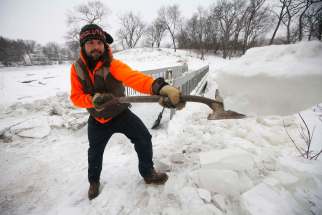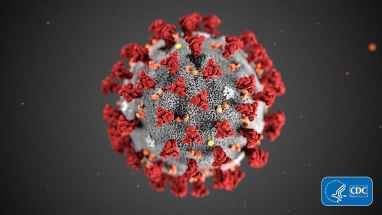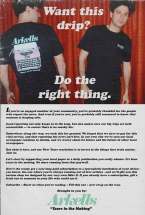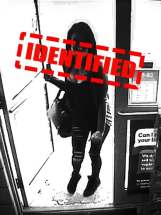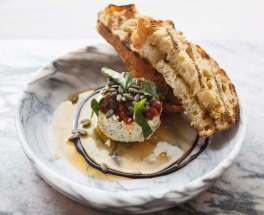Tootoo describes gruelling path to mental health
Read this article for free:
or
Already have an account? Log in here »
To continue reading, please subscribe:
Monthly Digital Subscription
$0 for the first 4 weeks*
- Enjoy unlimited reading on winnipegfreepress.com
- Read the E-Edition, our digital replica newspaper
- Access News Break, our award-winning app
- Play interactive puzzles
*No charge for 4 weeks then price increases to the regular rate of $19.00 plus GST every four weeks. Offer available to new and qualified returning subscribers only. Cancel any time.
Monthly Digital Subscription
$4.75/week*
- Enjoy unlimited reading on winnipegfreepress.com
- Read the E-Edition, our digital replica newspaper
- Access News Break, our award-winning app
- Play interactive puzzles
*Billed as $19 plus GST every four weeks. Cancel any time.
To continue reading, please subscribe:
Add Free Press access to your Brandon Sun subscription for only an additional
$1 for the first 4 weeks*
*Your next subscription payment will increase by $1.00 and you will be charged $16.99 plus GST for four weeks. After four weeks, your payment will increase to $23.99 plus GST every four weeks.
Read unlimited articles for free today:
or
Already have an account? Log in here »
Hey there, time traveller!
This article was published 05/02/2020 (2136 days ago), so information in it may no longer be current.
Indigenous hockey star Jordin Tootoo shared a message of hope and resilience at Red River College on Thursday, encouraging a gymnasium packed full of students and fans to find the courage to confront their mental health challenges and make positive change in their lives.
“Every Indigenous person I’ve met has been touched or affected by suicide,” Tootoo told reporters ahead of his speech at Red River College’s Notre Dame Campus.
“And me having to deal with it personally has given me an opportunity to reflect and to educate myself, that there is light at the end of the tunnel.”

Tootoo, the first Inuk to play in the NHL, told the crowd about his older brother Terence Tootoo, a promising hockey player who died by suicide in 2002 after an impaired driving arrest put his professional dreams at risk. Jordin Tootoo took over his brother’s role as the family breadwinner, made it to the NHL, and “lived like a rock star.”
“I had lots of people that wanted to be around me, but I had no one to talk to. I had lost respect for myself, the people around me. Money consumed me, but there was always more of it to come. And I thought that brought me peace.”
But deep inside, Tootoo still carried grief and anger related to his brother’s death. His life spun out of control, and he lost his teammates’ trust and respect following cycles of binge drinking. Tootoo entered rehab in late 2010, and has been sober for nine years.
“I had lots of people that wanted to be around me, but I had no one to talk to. I had lost respect for myself, the people around me. Money consumed me, but there was always more of it to come. And I thought that brought me peace.”
– Jordin Tootoo
“As long as I held on to the anger and blame, I could never be whole,” said Tootoo. “I knew I had to change.
“I bet many of you in here know what I’m talking about. You come from homes where abuse and substance abuse is prevalent. No one talks about it, especially us men, who are supposed to be defenders and leaders in our communities, to keep our homes safe, but we all know the damage runs a lot deeper.”
Healing from addiction involves letting go of anger and blame, and seeking hope and purpose in life, he said. Today he’s living happily with his wife Jennifer and daughters Siena and Avery after retiring from the NHL in 2018.
“And although I’ve never won the Stanley Cup, or come close, I can tell you this — Siena and Avery are my Stanley Cups.”

Red River College student Jonathan Meikle said Tootoo’s speech was a powerful message from an Indigenous icon, and resonated with him personally.
“He was very solution-based, he talked about addressing toxic masculinity, something that was very prevalent in his younger years, and throughout life,” said Meikle.
“And that’s something that is tearing our Indigenous men down — toxic masculinity, it leads to so many issues.”
The college used the occasion to launch a new digital therapy tool for students as part of the college’s mental health strategy.
“So often we’re told to suck it up, to hang in there, be strong,” Red River College interim president and CEO Darin Brecht told students.
“Today’s speaker asks us to instead reach out, talk to one another, ask for help — it’s OK.”
Tootoo said getting help changed his life and extended his hockey career.
“And like I said earlier, we all fight a fight no one knows about. Reach out to someone, conversate, ask those hard questions if you know someone struggling.”
solomon.israel@freepress.mb.ca
@sol_israel

